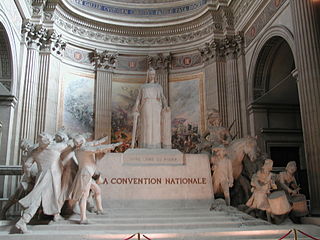
The French Revolution was a period of far-reaching social and political upheaval in France and its colonies beginning in 1789. The Revolution overthrew the monarchy, established a republic, catalyzed violent periods of political turmoil, and finally culminated in a dictatorship under Napoleon who brought many of its principles to areas he conquered in Western Europe and beyond. Inspired by liberal and radical ideas, the Revolution profoundly altered the course of modern history, triggering the global decline of absolute monarchies while replacing them with republics and liberal democracies. Through the Revolutionary Wars, it unleashed a wave of global conflicts that extended from the Caribbean to the Middle East. Historians widely regard the Revolution as one of the most important events in human history.
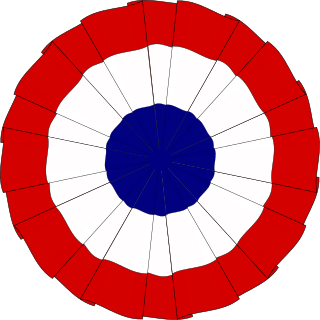
The Democratic-Republican Party was an American political party formed by Thomas Jefferson and James Madison around 1792 to oppose the centralizing policies of the new Federalist Party run by Alexander Hamilton, who was Secretary of the Treasury and chief architect of George Washington's administration. From 1801 to 1825, the new party controlled the presidency and Congress as well as most states during the First Party System. It began in 1791 as one faction in Congress and included many politicians who had been opposed to the new constitution. They called themselves Republicans after their political philosophy, republicanism. They distrusted the Federalist tendency to centralize and loosely interpret the Constitution, believing these policies were signs of monarchism and anti-republican values. The party splintered in 1824, with the faction loyal to Andrew Jackson coalescing into the Jacksonian movement, the faction led by John Quincy Adams and Henry Clay forming the National Republican Party and some other groups going on to form the Anti-Masonic Party. The National Republicans, Anti-Masons, and other opponents of Andrew Jackson later formed themselves into the Whig Party.

The United States Electoral College is a body of electors established by the United States Constitution, constituted every four years for the sole purpose of electing the president and vice president of the United States. The Electoral College consists of 538 electors, and an absolute majority of 270 electoral votes is required to win an election. Pursuant to Article II, Section 1, Clause 2, the legislature of each state determines the manner by which its electors are chosen. Each state's number of electors is equal to the combined total of the state's membership in the Senate and House of Representatives; currently there are 100 senators and 435 representatives. Additionally, the Twenty-third Amendment provides that the District of Columbia (D.C.) is entitled to a number of electors no greater than that of the least populous state.

The Society of the Friends of the Constitution, after 1792 renamed Society of the Jacobins, Friends of Freedom and Equality, commonly known as the Jacobin Club or simply the Jacobins, became the most influential political club during the French Revolution of 1789 and following. The period of their political ascendency is known as the Reign of Terror, during which time tens of thousands were put on trial and executed in France, many for political crimes.
The Girondins, Girondists or Gironde were members of a loosely knit political faction during the French Revolution.

Jérôme Pétion de Villeneuve was a French writer and politician who served as the second mayor of Paris, from 1791 to 1792.

The Mountain was a political group during the French Revolution, whose members called the Montagnards sat on the highest benches in the National Assembly.

The sans-culottes were the common people of the lower classes in late 18th century France, a great many of whom became radical and militant partisans of the French Revolution in response to their poor quality of life under the Ancien Régime. The name sans-culottes refers to their clothing, and through that to their lower-class status: culottes were the fashionable silk knee-breeches of the 18th-century nobility and bourgeoisie, and the working class sans-culottes wore pantaloons, or trousers, instead. The sans-culottes, most of them urban labourers, served as the driving popular force behind the revolution. Though ill-clad and ill-equipped, they made up the bulk of the Revolutionary army during the early years of the French Revolutionary Wars.
This is a glossary of the French Revolution. It generally does not explicate names of individual people or their political associations; those can be found in List of people associated with the French Revolution.

The secret ballot, also known as Australian ballot, is a voting method in which a voter's choices in an election or a referendum are anonymous, forestalling attempts to influence the voter by intimidation, blackmailing, and potential vote buying. The system is one means of achieving the goal of political privacy.
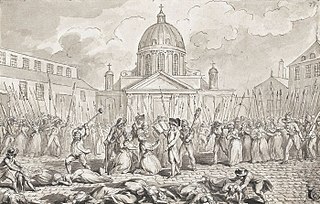
The September Massacres were a number of killings in Paris and other cities that occurred from 2–4 September 1792 during the French Revolution.

A parliamentary election was held in Madagascar on 23 September 2007, with the vote to be repeated in two constituencies on 14 November 2007. 637 candidates contested the election, in which the 127 seats in the National Assembly were at stake.
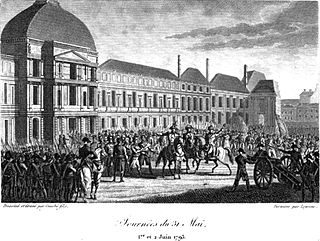
The insurrection of 31 May – 2 June 1793, during the French Revolution, resulted in the fall of the Girondin party under pressure of the Parisian sans-culottes, Jacobins of the clubs, and Montagnards in the National Convention. By its impact and importance, this insurrection stands as one of the three great popular insurrections of the French Revolution, following those of 14 July 1789 and 10 August 1792.
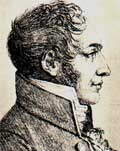
Jacques-Alexis Thuriot, known as Thuriot de la Rosière, and later as chevalier Thuriot de la Rosière, chevalier de l'Empire was an important French statesman of the French Revolution, and a minor figure under the French Empire of Napoleon Bonaparte.

Congo’s electoral law was approved in 2001 and amended in 2007, 2012, 2014 and 2016. It aims to provide the conditions for a democratic and transparent electoral system, from campaigning and media access through voter registration, vote counting and certification.
Denis Toussaint Lesage, was a deputy who represented Eure-et-Loir in the French National Convention and Seine in the Council of Five Hundred.

